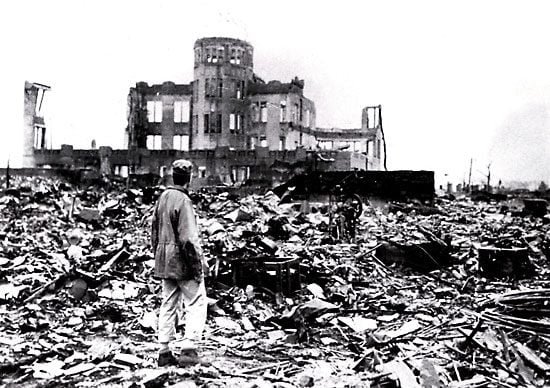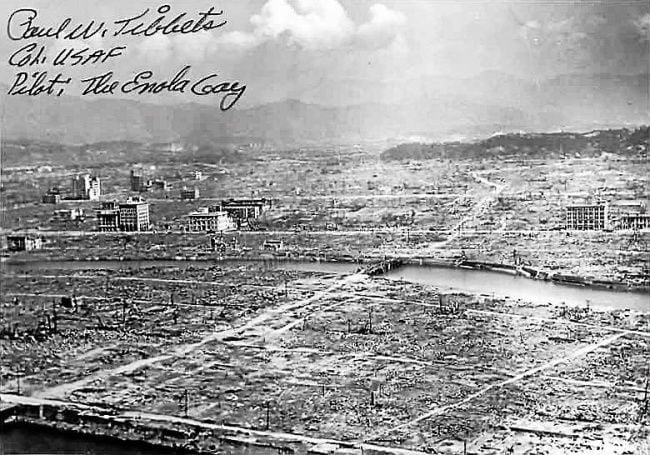
Originally written in 2017. Edited and Expanded.
When it comes to how we should deal with evil doers, the Bible, in the book of Romans, is very clear: God has endowed rulers full power to use whatever means necessary — including war — to stop evil. In the case of North Korea, God has given Trump authority to take out Kim Jong-Un. I’m heartened to see that our president — contrary to what we’ve seen with past administrations who have taken, at best, a sheepish stance toward dictators and oppressors — will not tolerate any threat against the American people. When President Trump draws a red line, he will not erase it, move it, or back away from it. Thank God for a President who is serious about protecting our country.”
— Robert Jeffress, Southern Baptist megachurch pastor of First Baptist Church in Dallas, Texas
Jeffress holds typical Evangelical eschatological (end times) beliefs — that the rapture of Christians from the earth is imminent (any moment), as is the seven years of holy terror (The Great Tribulation) that God will rain down everyone left on earth after the rapture. Jeffress, a premillennial, pretribulational, dispensationalist Baptist believes the next must-see TV program will be when Jesus returns to earth a second time and wages war against Satan and his followers — Satanists, Humanists, Atheists, Agnostics, Pagans, Buddhists, Shintoists, Muslims, Roman Catholics, and anyone else who doesn’t embrace Jeffress’ soteriology (doctrine of salvation) — in the battle of Armageddon. Millions upon millions of Americans hold the same eschatological beliefs as Jeffress, and it is for this reason that Evangelical eschatology is so dangerous.
Evangelicals such as Jeffress believe that life on planet Earth will continue to spiritually and morally deteriorate until God has had enough and tells Gabriel to blow his trumpet, signaling to Jesus that it is time for him to return to earth and safely carry away all the True Christians®. For the Jeffresses of the world, the rapture will be the mother of all middle fingers, telling us God-haters that we are in for it now; that God is going to literally do to us what is recorded in the book of Revelation.
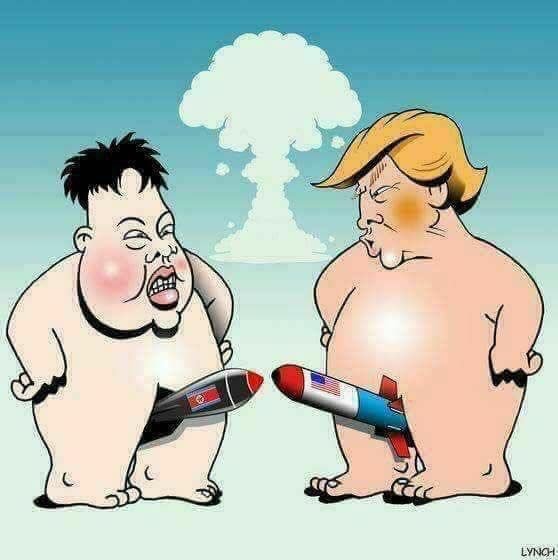
This kind of thinking should scare the shit out of rational people, not because Jesus is going to return to earth — he’s not — or that a mythical God is going to turn the earth into a dystopian novel of epic proportions — she’s not. What should scare us is that people who believe these things have the ear of the toddler-in-chief, Donald Trump. As anyone with an ounce of discernment knows, President Trump has no impulse control. He is megalomaniac who will go to any lengths — including destroying all life on our planet — to get his way. That the supreme leader of North Korea, Kim Jong-Un, a man who believes he is a god, is metaphorically waving his big dick in Trump’s face is sure to cause the President to throw caution to the wind and order a large-scale military strike on North Korea. Worse yet, Trump has even threatened to use nuclear weapons, answering a question he asked during the election: what good are nuclear weapons if you can’t use them? That the Evangelicals who have the President’s ear are encouraging him — using Biblical and theological justifications — to wage war against North Korea (and Iran, Iraq, Afghanistan, Russia and anyone else deemed a threat to God’s chosen nation, the United States) is truly frightening.
Threats of nuclear annihilation have only increased now that Joe Biden is president. During his first two years in office, North Korea, Iran, Russia, and China have all warned the United States to stop their military expansionism and threats — or else.
Atheists and other rational people dismiss Bible thumpers such as Jeffress as quaint relics from a bygone era. Silly Evangelicals. They believe the Bible is a supernatural book written by a supernatural God. Don’t they know that science has thoroughly discredited much of the Bible? However, despite scientific progress and the advancement of humanist principles, Evangelicals still hold fast to the belief that the Bible is an inspired, inerrant, infallible, never-been-proven-wrong religious text. Its word are true, and those who ignore the Bible, do so at their own peril. The fact that millions of Americans think just like Robert Jeffress means that we cannot, at such a dangerous, perilous time as this, ignore the pronouncements of Evangelical false prophets — especially when they have regular sleep-overs at the White House.
Like it or not, the Bible still matters, and how Evangelicals interpret it matters even more. We can augh all we want at their stone-age beliefs, but as long as Evangelicals have access to the highest levels of government, they are a threat that must be taken seriously. As long as we have a pussy-grabbing, lying “Christian” presidents and Evangelical congressmen, there is always a danger that theology will trump reason. Believing that God is on your side and will vindicate you is a sure recipe for disaster. No need to worry about consequences, right? God will take care of things. The most vocal climate change deniers in Congress are men and women who believe the Bible is the Word of God and worship at the feet of the Evangelical Jesus. In their minds, God is in control of e-v-e-r-y-t-h-i-n-g, so there is no need to worry about carbon emissions and rising temperatures. God has a divine plan —just read the Bible. According to Evangelicals, everything is going exactly going according to God’s perfect, unchanging plan, and if that plan includes nuking North Korea, so be it.
Evangelicals wrongly believe that God will protect his people — as he supposedly did when the Israelites were slaves in Egypt. No need to worry about nuclear fallout. God will make sure it doesn’t affect his chosen ones. And if he doesn’t? Well, that just means that God has a better plan and Evangelicals just need to “trust” him. Lost in all their “trust” of Jehovah is the fact that the overwhelming majority of earthlings do not worship the Evangelical God. We are being dragged into a murderous drama that is not of our own making. There is not much we can do about it except working to remove theocrats from office and flushing from Congress anyone who puts God, the Bible, and theology over the safety and welfare of the American people. As of today, the theocrats are winning and Jesus is the speaker of the House.
The late Walter Wink, a progressive Christian theologian, wrote:
In short, the Myth of Redemptive Violence is the story of the victory of order over chaos by means of violence. It is the ideology of conquest, the original religion of the status quo. The gods favour those who conquer. Conversely, whoever conquers must have the favour of the gods. The common people exist to perpetuate the advantage that the gods have conferred upon the king, the aristocracy, and the priesthood.
Religion exists to legitimate power and privilege. Life is combat. Any form of order is preferable to chaos, according to this myth. Ours is neither a perfect nor perfectible world; it is theatre of perpetual conflict in which the prize goes to the strong. Peace through war, security through strength: these are the core convictions that arise from this ancient historical religion, and they form the solid bedrock on which the Domination System is founded in every society.
Long before the ascension of The Donald to the throne, Evangelicals embraced the false notion that the United States is a city on a hill overlooking the earth, ever vigilant, seeking to advance God’s kingdom on earth. Believing that the United States is “special” and has some sort of manifest destiny has led Americans to commit all sorts of atrocities — beginning with the genocidal destruction of Native Americans and reaching its zenith with the firebombings of Germany and the dropping of atomic bombs on Hiroshima and Nagasaki. Our elected leaders and military have shown that they will do whatever is necessary to preserve America’s capitalistic way of life. Buying into the most horrific lie ever told — that war brings peace — the United States has shown it is willing to maim, kill, and destroy to preserve the American dream.
Thomas Merton, in an essay titled A Devout Meditation in Memory of Adolph Eichmann, wrote:
The sanity of Eichmann is disturbing. We equate sanity with a sense of justice, with humaneness, with prudence, with the capacity to love and understand other people. We rely on the sane people of the world to preserve it from barbarism, madness, destruction. And now it begins to dawn on us that it is precisely the sane ones who are the most dangerous. It is the sane ones, the well-adapted ones, who can without qualms and without nausea aim the missile, and press the buttons that will initiate the great festival of destruction that they, the sane ones, have prepared… They will be obeying sane orders that have come sanely down the chain of command. And because of their sanity they will have no qualms at all. The ones who coolly estimate how many millions of victims can he considered expendable in a nuclear war, I presume they do all right with the Rorschach ink blots too.
….
Ponder for a moment Merton’s words:
It is the sane ones, the well-adapted ones, who can without qualms and without nausea aim the missile, and press the buttons that will initiate the great festival of destruction that they, the sane ones, have prepared. They will be obeying sane orders that have come sanely down the chain of command. And because of their sanity they will have no qualms at all. The ones who coolly estimate how many millions of victims can he considered expendable in a nuclear war…
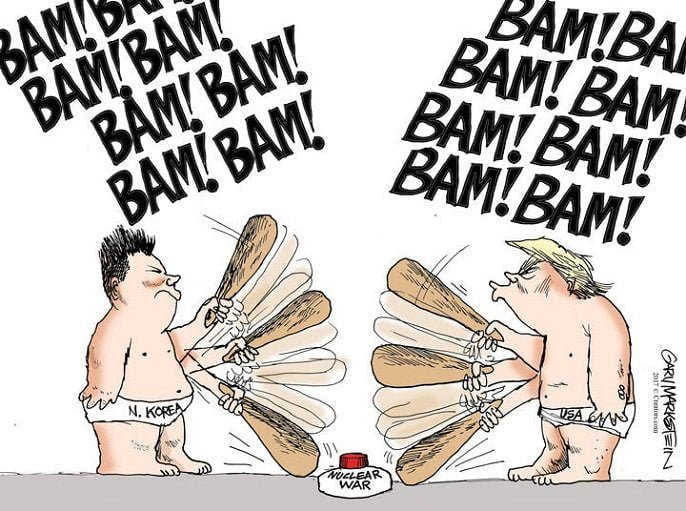
We want to believe that the Joint Chiefs of Staff and Secretary of Defense will, when it comes to launching nuclear weapons, stand up to the President, refusing to obey his orders. Wishful thinking, as Merton makes clear. Soldiers obey. When our nation’s sovereignty and Christian way of life is threatened, history shows that the U.S. military can and will use any and every means necessary to preserve our republic.
Merton, in an essay on war that was not published until after his death, wrote:
The Romans, to speak generally, rely on force in all their enterprises and think it incumbent upon them to carry out their projects in spite of all, and that nothing is impossible when they have once decided upon it.
NOTHING is impossible when they — the powers that be — have decided to wage war. Once the United States commits to turning Iran into a parking lot or wiping North Korea off the face of the earth, NOTHING is impossible. Think that the United States would never use nuclear weapons again? Think again. There are most certainly statisticians and military “geniuses” holed up somewhere in the bowels of the Pentagon working on reports and charts detailing the likely outcomes of nuking a foreign adversary. There are sane, rational military and government leaders who really do think that nuclear war is winnable. Lunacy, to be sure, but so is believing, as Robert Jeffress does, that Jesus is coming soon. That many of our military leaders are card-carrying Evangelicals should cause rational people to fear for their lives. Just imagine for a moment, a general or two who believe that Jesus wants them to help usher in the Great Tribulation. No worries for us, they think. We will be raptured away.
Let me conclude this post with an excerpt from Thomas Merton’s essay: War and the Crisis of Language. Written during the Vietnam War, Merton shows how reason and the meaning of words are turned on their heads during times of war. Merton writes:
A classic example of the contamination of reason and speech by the inherent ambiguity of war is that of the U.S. major who, on February 7, 1968 shelled the South Vietnamese town of Bentre “regardless of civilian casualties . . . to rout the Vietcong.” As he calmly explained, “It became necessary to destroy the town in order to save it.” Here we see, again, an insatiable appetite for the tautological, the definitive, the final. It is the same kind of language and logic that Hitler used for his notorious “final solution.” The symbol of this perfect finality is the circle. An argument turns upon itself, and the beginning and end get lost: it just goes round and round its own circumference. A message comes in that someone thinks there might be some Vietcong in a certain village. Planes are sent, the village is destroyed, many of the people are killed. The destruction of the village and the killing of the people earn for them a final and official identity. The burned huts become “enemy structures”; the dead men, women, and children become “Vietcong,” thus adding to a “kill ratio” that can be interpreted as “favorable.” They were thought to be Vietcong and were therefore destroyed. By being destroyed they became Vietcong for keeps; they entered “history,” definitively as our enemies, because we wanted to be on the “safe side,” and “save American lives”–as well as Vietnam.
The logic of “Red or dead” has long since urged us to identify destruction with rescue–to be “dead” is to be saved from being “Red.” In the language of melodrama, our grandparents became accustomed to the idea of a “fate worse than death.” A schematic morality concluded that if such and such is a fate worse than death, then to prefer it to death would surely be a heinous sin. The logic of war-makers has extended this not only to the preservation of one’s own moral integrity but to the fate of others, even of people on the other side of the earth, whom we do not always bother to consult personally on the subject. We weigh the arguments that they are not able to understand (perhaps they have not even heard that arguments exist!) And we decide, in their place, that it is better for them to be dead–killed by us–than Red, living under our enemies.
The Asian whose future we are about to decide is either a bad guy or a good guy. If he is a bad guy, he obviously has to be killed. If he is a good guy, he is on our side and he ought to be ready to die for freedom. We will provide an opportunity for him to do so: we will kill him to prevent him falling under the tyranny of a demonic enemy. Thus we not only defend his interests together with our own, but we protect his virtue along with our own. Think what might happen if he fell under Communist rule and liked it!
The advantages of this kind of logic are no exclusive possession of the United States. This is purely and simply the logic shared by all war-makers. It is the logic of power. Possibly American generals are naive enough to push this logic, without realizing, to absurd conclusions. But all who love power tend to think in some such way. Remember Hitler weeping over the ruins of Warsaw after it had been demolished by the Luftwaffe: “How wicked these people must have been,” he sobbed, “to make me do this to them!”
….
So much for the practical language of the battlefield. Let us now attend to the much more pompous and sinister jargon of the war mandarins in government offices and military think-tanks. Here we have a whole community of intellectuals, scholars who spend their time playing out “scenarios” and considering “acceptable levels” in megadeaths. Their language and their thought are as esoteric, as self-enclosed, as tautologous as the advertisement we have just discussed. But instead of being “coiffed” in a sweet smell, they are scientifically antiseptic, businesslike, uncontaminated with sentimental concern for life–other than their own. It is the same basic narcissism, but in a masculine, that is managerial, mode. One proves one’s realism along with one’s virility by toughness in playing statistically with global death. It is this playing with death, however, that brings into the players’ language itself the corruption of death: not physical but mental and moral extinction. And the corruption spreads from their talk, their thinking, to the words and minds of everybody. What happens then is that the political and moral values they claim to be defending are destroyed by the contempt that is more and more evident in the language in which they talk about such things. Technological strategy becomes an end in itself and leads the fascinated players into a maze where finally the very purpose strategy was supposed to serve is itself destroyed. The ambiguity of official war talk has one purpose above all: to mask this ultimate unreason and permit the game to go on.
Of special importance is the style of these nuclear mandarins. The technological puckishness of Herman Kahn is perhaps the classic of this genre. He excels in the sly understatement of the inhuman, the apocalyptic, enormity. His style is esoteric, allusive, yet confidential. The reader has the sense of being a privileged eavesdropper in the councils of the mighty. He knows enough to realize that things are going to happen about which he can do nothing, though perhaps he can save his skin in a properly equipped shelter where he may consider at leisure the rationality of survival in an unlivable world. Meanwhile, the cool tone of the author and the reassuring solemnity of his jargon seem to suggest that those in power, those who turn loose these instruments of destruction, have no intention of perishing themselves, that consequently survival must have a point. The point is not revealed, except that nuclear war is somehow implied to be good business. Nor are H-bombs necessarily a sign of cruel intentions. They enable one to enter into communication with the high priests in the enemy camp. They permit the decision-makers on both sides to engage in a ritual “test of nerves.” In any case, the language of escalation is the language of naked power, a language that is all the more persuasive because it is proud of being ethically illiterate and because it accepts, as realistic, the basic irrationality of its own tactics. The language of escalation, in its superb mixture of banality and apocalypse, science and unreason, is the expression of a massive death wish. We can only hope that this death wish is only that of a decaying Western civilization, and that it is not common to the entire race. Yet the language itself is given universal currency by the mass media. It can quickly contaminate the thinking of everybody.
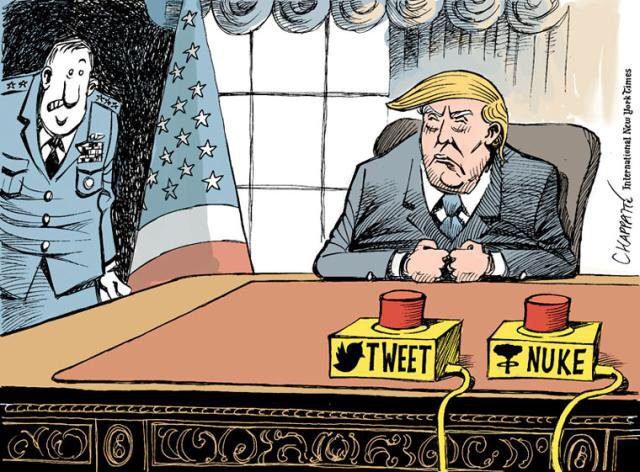
Listen closely in the days ahead as our political leaders and Evangelical preachers turn language and decency on its head in their justifications of annihilating Russia, China, North Korea, Iran, and anyone else who dares to “threaten” the mighty US of A. There will be hell to pay, Kim Jong-Un, but just remember we are killing your people because we love you and God has a wonderful plan for your life. And when hellfire and brimstone rain down on defenseless Americans, the Evangelical warmongers among us will learn — right before they are vaporized — that the God they thought was on their side is actually Korean.
Bruce Gerencser, 68, lives in rural Northwest Ohio with his wife of 47 years. He and his wife have six grown children and sixteen grandchildren. Bruce pastored Evangelical churches for twenty-five years in Ohio, Texas, and Michigan. Bruce left the ministry in 2005, and in 2008 he left Christianity. Bruce is now a humanist and an atheist.
Your comments are welcome and appreciated. All first-time comments are moderated. Please read the commenting rules before commenting.
You can email Bruce via the Contact Form.



